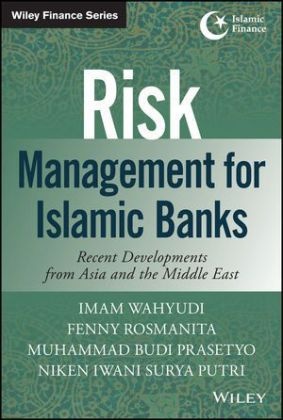Read more
Gain insight into the unique risk management challenges within the Islamic banking system Risk Management for Islamic Banks: Recent Developments from Asia and the Middle East analyzes risk management strategies in Islamic banking, presented from the perspectives of different banking institutions.
List of contents
Preface xv
Acknowledgments xxi
About the Authors xxiii
List of Acronyms xxv
PART ONE Introduction
CHAPTER 1 Principles of the Islamic Financial System 3
Islamic Financial Contracts: The li-tabarru' Contract versus li-tijari Contract 3
Principles of Islamic Finance 5
Interest-Based Return versus Profit-Loss Sharing 6
CHAPTER 2 The Islamic Bank and Risk Management 9
Differences between an Islamic Bank and a Conventional Bank 10
History of the Islamic Bank 11
Global Islamic Banking Entities 12
Risk as an Integral Part of Islamic Bank 16
Stages in Risk Management 20
Risk and Return Trade-Off 27
Various Approaches on Risk Identification 28
The Importance of Risk Management for an Islamic Bank 28
PART TWO Risk Management Framework in Islamic Banking
CHAPTER 3 History of Risk Management in Islamic Banking 33
Basel I and Its History 34
Basel II and Its History 36
Basel III and Its History 40
The AAOIFI and Its Role 43
The IFSB and Its Role 44
CHAPTER 4 The Risk Management Process in Islamic Banking 47
Risk Management Model in Islamic Banks 47
Risk Identification Process in Islamic Banking 56
Risk Matrix 57
Risk Mitigation Process 61
Risk Review Process 62
Infrastructure and Facilities 62
Calculation of Minimum Capital Requirements 66
CHAPTER 5 Financial Reporting and Analysis in Islamic Banking 72
The Importance of Financial Statements in Risk Analysis 72
Scope of Financial Statement in Islamic Banks 74
Basic Contracts and Instruments in the Islamic Bank 78
Structure of the Balance Sheet 80
Analysis of Income Statement 87
Persistence Analysis 88
Tools of Financial Statement Analysis 89
Core Business Activity in Islamic Banks 92
Off-Balance Sheet Activity in Islamic Banks 101
PART THREE Risk Management in Islamic Banking
CHAPTER 6 Financing Risk in Islamic Banking 107
Urgency of Financing Risk Management in Islamic Banking 107
Characteristics of Islamic Financing Contracts 108
Financing Risk: Definitions and Its Scope 110
Role of Rahn and Kafalah 112
Defining Determinant Factors of Financing Risk 114
Urgency of the Independent Rating Agency 128
Rating and Financing Risk Provisions 130
Risk-Based Financing Limit 133
Concentration Risk in Financing Portfolio 133
Financing Portfolio Management 135
Measuring Financing Risk in the Islamic Bank 139
CHAPTER 7 Operational Risk in Islamic Banking 144
Urgency of Risk Awareness 144
Operational Risk Coverage in Islamic Banks 145
Identification of Operational Risk Factors 149
Operational Risk in Islamic Financial Contracts 155
Measurement of Islamic Operational Risk 160
Developing an Operational Risk Management System 166
CHAPTER 8 Syari'ah Compliance Risk 168
Basic Principles of Islamic Economics and Financial System 169
Syari'ah as Principle and Spirit in Business 170
Various Prohibitions in Mu'amalah 172
Why Should Islamic Banking Comply with Islamic Principles? 175
Integrating Syari'ah Compliance in the Islamic Bank 176
Evolution of Syari'ah Governance in Islamic Financial System 177
Syari'ah Advisory Board and Syari'ah Compliance Audit as a Framework 179
Identification Process of Syari'ah
About the author
IMAM WAHYUDI is a lecturer in the Faculty of Economics and Business at University of Indonesia (FEB-UI) and a senior researcher at the Centre of Islamic Economics and Business.
FENNY ROSMANITA is a lecturer at FEB-UI and a researcher at its Centre of Islamic Economics and Business.
MUHAMMAD BUDI PRASETYO is a lecturer and junior researcher in the Department of Management at FEB-UI.
NIKEN IWANI SURYA PUTRI is a lecturer at FEB-UI and a junior researcher at its Centre of Islamic Economics and Business.
Summary
Gain insight into the unique risk management challenges within the Islamic banking system Risk Management for Islamic Banks: Recent Developments from Asia and the Middle East analyzes risk management strategies in Islamic banking, presented from the perspectives of different banking institutions.

